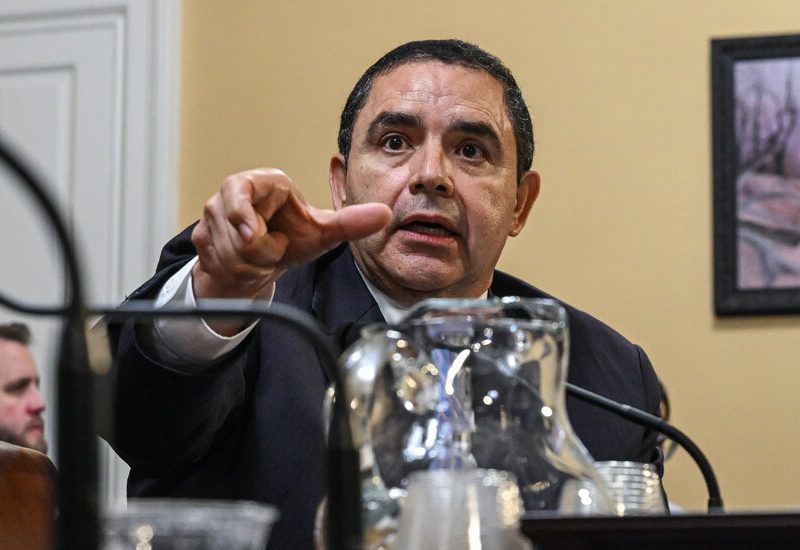To the Editor:
Re “How Joe Biden Lost His Way in Gaza,” by Nicholas Kristof (column, April 21):
The masterful, balanced and well-reasoned column by Mr. Kristof, written not in anger but in deep sorrow, should serve as a warning to President Biden.
In standing by Israel’s atrocious conduct of the war and letting Prime Minister Benjamin Netanyahu poke a finger in America’s eye, Mr. Biden not only cedes his moral standing but also risks destroying the unity of the Democratic Party; the possibility of a turbulent convention; and the loss of Michigan and the election to Donald Trump.
One only hopes that he adopts a course that reduces the chance of any of these outcomes.
Masood Haider
Princeton Junction, N.J.
To the Editor:
The war started by Hamas is a test of whether a civilized world will accept Hamas’s barbaric tactics — including its atrocities on Oct. 7 and hiding its terrorists, arms and Israeli captives among and beneath a dense civilian population.
President Biden has not lost his way at all. The truth is the opposite: He has shown the courage to help Israel fight evil and prove that barbarism doesn’t win and should not be tried by others.
Tod Cooperman
Scarsdale, N.Y.
To the Editor:
Nicholas Kristof’s powerful cri de coeur rightly portrays President Biden as a tragic figure, a good and decent man whose limitations have led to unspeakable horrors in Gaza.
But it is not too late to reverse course. In a decision due May 8, the Biden administration can and should conclude that Israel’s assurances that weapons it receives from the U.S. will be used in accordance with international humanitarian law and that it will facilitate the passage of humanitarian aid are not credible. On that basis Mr. Biden must stop the transfer of offensive weapons to Israel.
The evidence that Israel’s assurances are not credible is now overwhelming. Israel continues its severe restrictions on aid and safe passage within Gaza to reach starving people. Ambulance and medical convoy staff have been killed on supposedly safe routes.
Israel’s breaches of international law are now amply documented, especially its flouting duties of proportionality and taking all feasible precautions to minimize civilian harm. It has even shown indifference to the obligation to prevent patients inside hospitals from dying during hospital sieges.
Lives can still be saved if the president honestly applies his own standards. He must.
Leonard Rubenstein
Alexandria, Va.
The writer is a professor at the Johns Hopkins Bloomberg School of Public Health and the author of “Perilous Medicine: The Struggle to Protect Health Care From the Violence of War.”
To the Editor:
In his more than 4,000 words about the suffering in Gaza, Nicholas Kristof does not once mention the word “hostage.” The trauma of Israelis did not end on Oct. 7. It is a constant wound while hostages remain captive in Hamas tunnels.
Daniel Wolf
Teaneck, N.J.
Trump, ‘Unprecedented’
To the Editor:
Let’s remind ourselves that every reference to “unprecedented” in the context of Donald Trump — his candidacy, his conduct and the criminal charges they produced — amounts to an unprecedented new low: a new bottom we’ve hit, a lowering of standards we never thought this nation would sink to.
Steven Schild
Winona, Minn.
The writer is a retired journalism professor.
When Screen Time Overwhelms Class Time
To the Editor:
Re “Get Tech Out of the Classroom Before It’s Too Late,” by Jessica Grose (Opinion, nytimes.com, April 10):
Thank you for Ms. Grose’s thoughtful piece, and kudos to the San Luis Obispo parents for taking action to limit technology in their California school district.
I grew up when classrooms were screen-free (not counting occasional movies projected on a pull-down screen). I fear that today’s kids are missing the higher development of critical thinking, creativity and social skills that comes from hands-on learning, extended reading, deep concentration, live discussion and unstructured non-screen play time.
Kids easily get “hooked” on the quick spikes of entertainment or attention they get from texts and social media, but these do not foster the ability to focus deeply in the ways they need to develop as competent, empathetic, engaged and fulfilled human beings.
A school day filled with screens is no substitute for the excitement and mental development a child gets when encouraged to read to their heart’s content on a topic of interest. Or the empathy they develop from reading a well-written novel that gets them thinking about other people’s lives and circumstances. Or the problem-solving skills and confidence they develop from physical, hands-on activities such as woodworking, lab experiments or gardening. Or the social skills they learn from interacting — human to human — with other children and adults.
I hope parents everywhere will push for changes to minimize screen time in school. Indeed, I think all parents should have the opportunity to choose a public school environment for their kids that minimizes screen time, whether that’s a magnet school in their district or designated classrooms in their schools.
If you don’t have kids in school and think this doesn’t matter to you, remember that today’s kids are our future health care practitioners, pilots, bridge designers, civic leaders and so on.
Beth Karpf
Boulder, Colo.
How Sorrow Changes Us
To the Editor:
Re “We Don’t Have to Drown in Climate Grief,” by Liz Jensen (Opinion guest essay, April 12):
Ms. Jensen’s essay expresses such an important truth about grief — whether the heart-wrenching grief of bereaved parents or the frightening concern for the health of our planet.
When our son died suddenly — similar to Ms. Jensen’s loss — “devastated” became the ultimate understatement. As I learned to put one foot in front of the other, I knew deep inside that there would be no such thing as closure. How could I close the period in which I grieved my firstborn child? Love doesn’t just stop, and loss doesn’t either.
A wise friend told me that I could ask my questions as long as I needed to do that, and I could make his life and death part of me. As Ms. Jensen so eloquently says, while closure is not possible, transforming sorrow into something meaningful is.
Let it stretch your determination to live in honor of your loved one … whatever that looks like. Let it create a depth of compassion you didn’t know was possible. Let it make you stronger, more grateful for all that you have and have had, and let it make you soft and tenderly available to others who struggle.
Ms. Jensen wove her two sorrows together and let that guide her. Don’t let loss make you blind to the beauty and wonder that is forever around us.
As W.S. Merwin wrote in the poem “Separation”:
Your absence goes through me
Like thread through a needle.
Everything I do is stitched with its color.
Jane Cook
Austin, Texas
Follow California’s Lead on Property Taxes
To the Editor:
Re “It’s Time to End the Quiet Cruelty of Property Taxes,” by Andrew W. Kahrl (Opinion guest essay, April 12):
California’s landmark Proposition 13, passed in 1978, solved all the problems identified by Professor Kahrl. The value of your home is the price agreed on between you and the seller, increased by up to 2 percent a year to account for inflation. This eliminates any subjectivity created by assessors or assessment models. The tax rate is fixed at 1 percent of this value.
Although local governments have been adept at adding fees (not taxes, which require voter approval), this system is still the gold standard for property taxes and is responsible for much of California’s relative prosperity.
Thomas Burns
Berkeley, Calif.



